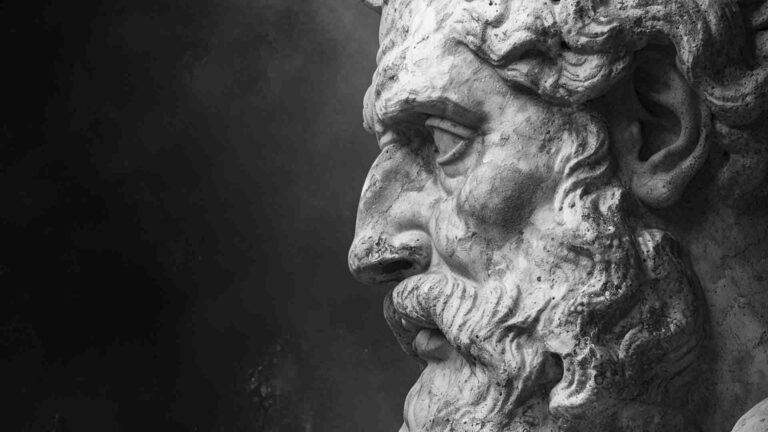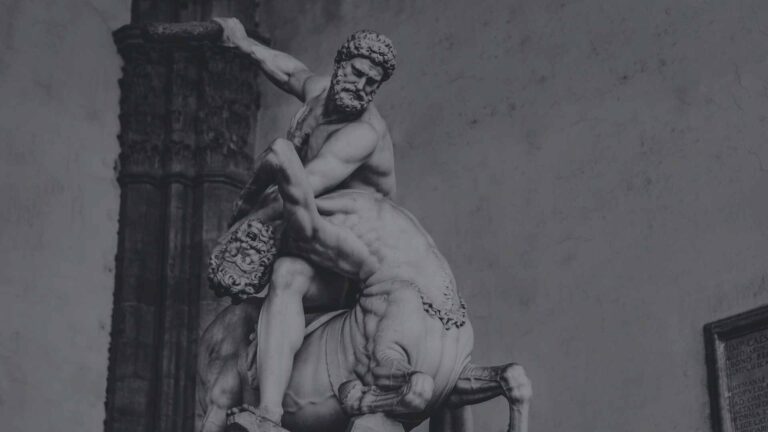The ego is often used as a term to describe our sense of self and how we perceive ourselves in relation to the world around us, and others. It can be seen as part of our overall identity, giving us a sense of individuality and separating us from the identities of others.
While it is true that having a sense of self is necessary to properly orient ourselves in the world and interact effectively with others, the ego can become destructive when it begins to inflate or becomes detached from reality. This inflation can happen when we put too much weight on our own significance and importance and too little on that of others. Detachment comes when we are less able to see how we clearly fit into the world and to society, sometimes presenting itself as delusion, such as the delusion of self-importance, of ability, or of how others see us.
We may become excessively self-centered and focused on our own wishes and objectives when our ego is inflated. This might result in conceit, haughtiness, or even narcissism. It’s possible for us to start thinking that we are superior to other people or that we are indestructible in some sense.
Our personal and professional lives may suffer as a result of this inflated ego. Conflicts with others may result as a result of prioritising our own wants over theirs. When someone criticizes us or points out our errors, it could also make us defensive, which might stop us from improving and learning.
Humility and self-awareness can be practiced in order to mitigate the dangers posed by the ego. This means being aware of our own flaws and limitations as well as being receptive to criticism from others. Also, it entails treating others with respect and kindness and appreciating their needs and feelings.
Quotes on Ego:
“Remember: Matter. How tiny your share of it. Time. How brief and fleeting your allotment of it. Fate. How small a role you play in it.”
– Marcus Aurelius
“The first half of life is devoted to forming a healthy ego, the second half is going inward and letting go of it.”
– Carl Jung
“I have often wondered how it is that every man loves himself more than all the rest of men, but yet sets less value on his own opinion of himself than on the opinion of others.”
– Marcus Aurelius
“Neurosis is the result of a conflict between the ego and its id, whereas psychosis is the analogous outcome of a similar disturbance in the relation between the ego and its environment (outer world).”
– Sigmund Freud
“The moment you become aware of the ego in you, it is strictly speaking no longer the ego, but just an old, conditioned mind-pattern. Ego implies unawareness. Awareness and ego cannot coexist.”
– Eckhart Tolle
“The egoist loves himself without rivals.”
– Marcus Tullius Cicero
“The ego refuses to be distressed by the provocations of reality, to let itself be compelled to suffer. It insists that it cannot be affected by the traumas of the external world; it shows, in fact, that such traumas are no more than occasions for it to gain pleasure.”
– Sigmund Freud
“[The ego] cannot tell the difference between an event and its reaction to that event. Every ego is a matter of selective perception and distorted interpretation. Only through awareness—not through thinking—can you differentiate between fact and opinion. Only through awareness are you able to see: There is the situation and here is the anger I feel about it, and then realize there are other ways of approaching the situation, other ways of seeing it and dealing with it.”
– Eckhart Tolle
“You live as if you were destined to live forever, no thought of your frailty ever enters your head, of how much time has already gone by you take no heed. You squander time as if you drew from a full and abundant supply, though all the while that day which you bestow on some person or thing is perhaps your last.”
– Seneca
“Midlife is the time to let go of an overdominant ego and to contemplate the deeper significance of human existence.”
– Carl Gustav Jung
“We have learned, for example, that the more virtuous a man is the more severe is his super-ego, and that he blames himself for misfortunes for which he is clearly not responsible.”
– Sigmund Freud
“If the ego were to disappear, or rather, to be seen as a useful fiction, there would no longer be the duality of subject and object, experiencer and experience. There would simply be a continuous, self-moving stream of experiencing, without the sense either of an active subject who controls it or of a passive subject who suffers it. The thinker would be no more than the series of thoughts, and the feeler no more than the feelings.”
– Alan Watts
“We must be able, at any time, to accept the fact that we could all be absolutely and utterly wrong”
– Terry Pratchett
“Sometimes I get in my head and I think I am somebody, and I am easily offended. When I know I am nobody, I can never be offended.”
– Mike Tyson
“I don’t want it to end, and so, as every therapist knows, the ego does not want an end to its “problems” because they are part of its identity. If no one will listen to my sad story, I can tell it to myself in my head, over and over, and feel sorry for myself, and so have an identity as someone who is being treated unfairly by life or other people, fate or God. It gives definition to my self-image, makes me into someone, and that is all that matters to the ego.”
– Eckhart Tolle
“If your ego starts out, ‘I am important, I am big, I am special,’ you’re in for some disappointments when you look around at what we’ve discovered about the universe. No, you’re not big. No, you’re not. You’re small in time and in space. And you have this frail vessel called the human body that’s limited on Earth.”
– Neil deGrasse Tyson
“No one has learned the meaning of life until he has surrendered his ego to the service of his fellow men.”
– Beran Wolfe
“Our ego is our silent partner-too often with a controlling interest.”
– Cullen Hightower
“Make your ego porous. Will is of little importance, complaining is nothing, fame is nothing. Openness, patience, receptivity, solitude is everything.”
– Rainer Maria Rilke
“It is easy to show that the ego ideal answers to everything that is expected of the higher nature of man. As a substitute for a longing for the father, it contains the germ from which all religions have evolved.”
– Sigmund Freud






